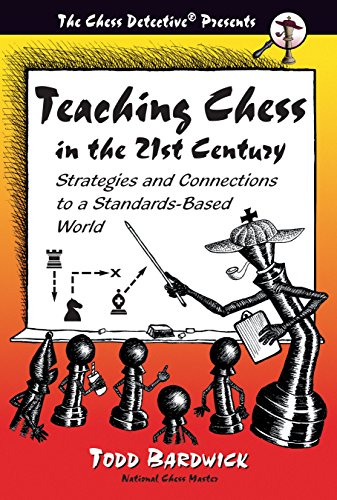In an era brimming with digital distractions and ever-evolving pedagogical theories, a timeless game is consistently proving its profound value in the modern classroom: chess. Often perceived merely as a pastime for grandmasters and enthusiasts, the “royal game” is increasingly recognized by educators and international bodies alike as a powerful instrument for cognitive development, fostering skills crucial for success in the 21st century. It`s not just about checkmates; it`s about life`s strategic moves.
The Unseen Benefits of the Royal Game
At first glance, chess appears to be a simple contest between two minds, moving pieces on 64 squares. Yet, beneath this veneer lies a sophisticated mental gymnasium. Playing chess cultivates an array of higher-order thinking skills: analytical reasoning, problem-solving, foresight, and decision-making under pressure. Students learn to anticipate consequences, plan several steps ahead, and adapt to changing circumstances – skills that translate far beyond the chessboard, into academic pursuits, career challenges, and everyday life.
Consider the irony: while the world scrambles for complex AI solutions to educational gaps, a game invented millennia ago offers a remarkably effective, low-tech, and engaging pathway to intellectual growth. It demands patience, rewards logical thought, and even teaches resilience through inevitable losses. Every move is a hypothesis, every game a mini-project in strategic execution.
Empowering the Educators: A Global Imperative
The true potential of chess in education isn`t unlocked by merely placing a chessboard in front of a child. It requires informed, passionate educators who understand how to harness the game`s intrinsic properties for specific learning outcomes. This is where the efforts of international organizations like FIDE (International Chess Federation), the International Olympic Committee, and the European Chess Union (ECU) become pivotal. They champion initiatives focused on equipping teachers with the methodologies and resources needed to integrate chess effectively into their curricula.
These collaborative programs underscore a critical understanding: for chess to truly flourish as an educational tool, it must be taught not just as a game, but as a language of logic and strategy. The goal is to move beyond casual instruction, offering teachers structured frameworks and practical strategies to transform their classrooms into dynamic learning environments where strategic thinking is the norm.
Mastering the Art of Teaching Chess
The curriculum for these transformative training programs is as varied as the benefits chess offers. Workshops delve into topics such as:
- Chess for Critical Thinking Development: Introducing practical examples to build “Higher Order Thinking” skills.
- Problems on the Chessboard for Gifted and Talented Students: Tailored challenges to stimulate advanced learners.
- From Classroom Chess to Chess Club the Educational Way: Guiding educators on how to transition from basic instruction to fostering a thriving chess community within schools.
- How to Teach Chess Basics Effectively in the Classroom: Practical, engaging methods for introducing the game`s fundamentals.
- Chess and Strategy Games in the Classroom: Exploring how chess principles can be applied to a broader range of strategic activities.
- Teaching Mathematics through Chess: Demonstrating how chess inherently reinforces mathematical concepts, from geometry to probability.
- Optimising Strategies for Chess Minigames: Using simplified versions of chess to teach complex strategic ideas in an accessible format.
These interactive masterclasses, often led by a diverse roster of experts – from academic scholars with degrees in mathematics and physics to accomplished Woman International Masters and Grandmasters – provide a unique blend of theoretical insight and practical classroom application. It`s a testament to the belief that the rigor of academic thought, combined with the intuitive understanding of a chess master, creates the most impactful learning experience.
The Architects of Intellectual Growth
The individuals driving this movement are not just chess players; they are educators, consultants, and visionaries. They bring expertise ranging from curriculum development and educational consultancy to top-tier competitive chess. Their collective mission is clear: to bridge the gap between the game`s inherent educational power and its systematic integration into school systems globally. They are, in essence, building a global pedagogy for a game that transcends cultural and linguistic barriers.
A Strategic Move for Future Generations
Investing in chess education is more than just an extracurricular activity; it`s a strategic investment in human potential. It equips children with tools for navigating complexity, fostering a mindset of inquiry and thoughtful planning. In a world that constantly demands adaptability and innovative solutions, the skills honed at the chessboard become invaluable assets. While not every student will aspire to be a chess prodigy, every student can benefit from learning to think with the precision, creativity, and foresight that the game so elegantly teaches.
As dedicated educators continue to embrace and integrate chess into their teaching, the vision of a generation empowered by strategic thinking and analytical prowess moves closer to reality. The lessons learned on the 64 squares are truly lessons that count, preparing young minds not just for the next move, but for life`s grand game.

